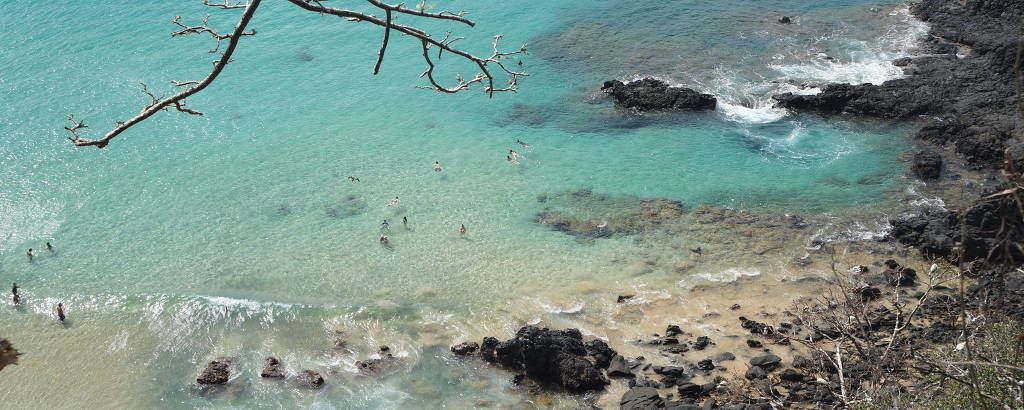Fernando de Noronha is known on social media for being a celebrity spot, full of boutique hotels, but the reality that locals - and most tourists - see is entirely different.
Vila dos Remédios, the islands only town, has simple houses, buildings in disrepair, cobbled streets and buggies needing maintenance.
To reach the beaches and most lodging options, visitors need to drive along a 4-mile one-lane road and dirt tracks, some of them in adverse conditions.
For lodging, there is more than the Instagram-worthy luxury inns with spas and expensive rates. There are bed and breakfasts and hostels that charge more reasonable prices.
One of the reasons why Noronha is so expensive is that all goods need to be transported from the mainland by boat.
But many want to pay the price for the breathtaking scenery. The number of tourists who visited Noronha's National Marine Park increased by 11% from 2017 to 2018, reaching 100,402 people. The amount is over the limit proposed by the park's environmental plan: up to 89,000 visitors per year.
The increase doesn't make for crowded beaches yet but might give some trouble to those who planned short stays in Noronha, such as four or five days.
Some beaches and trails inside the national park need to be booked beforehand, for instance.
There are ten beaches on the side of the island turned to the mainland. There, the waters are calm between August and December, and good for surfing between January and March.
On the other side of the island, facing Africa, the sea is rough all year long. At Leão, Sueste and Atalaia beaches, visitors and divers need to be careful with water currents.
Boat rides usually stop at Praia do Sancho, where snorkelers can see coral reefs, colorful fishes and even sharks. But there's nothing to fear: guides say that the Noronha ecosystem is in balance, so the sharks don't attack human beings. Still, accidents sometimes happen.
Translated by NATASHA MADOV
